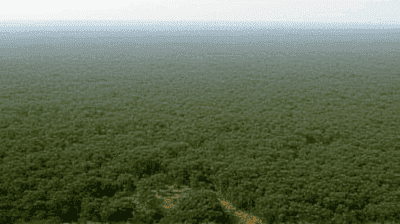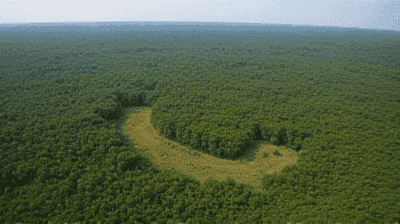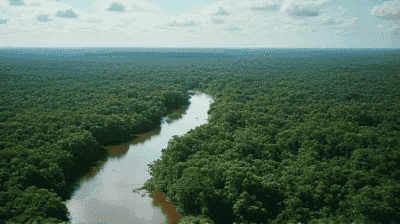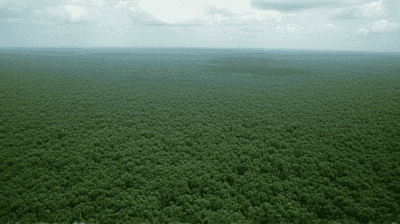
The Amazon rainforest, often referred to as the "lungs of the Earth," plays a critical role in regulating the global climate, preserving biodiversity, and supporting the livelihoods of millions of people. However, the ongoing deforestation in this vital ecosystem poses a significant threat to these functions. Brazil, which houses approximately 60 percent of the Amazon, has witnessed alarming rates of deforestation in recent years, particularly under various administrations that have prioritized economic development over environmental protections. With the return of Luiz Inácio Lula da Silva to the presidency in 2023, there is renewed hope and scrutiny regarding Brazil's environmental policies.
The Amazon rainforest is a critical global asset, serving as a massive carbon sink that absorbs vast amounts of carbon dioxide and mitigates climate change. It is home to over three million species of plants and animals and is integral to the livelihoods of indigenous communities and local populations. The Amazon also regulates weather patterns, contributes to the water cycle, and supports global biodiversity.
Deforestation in the Brazilian Amazon has reached alarming levels, driven primarily by logging, agriculture, and livestock ranching. Between 2000 and 2010, deforestation rates declined significantly, thanks in part to stricter enforcement of environmental laws and the creation of protected areas. However, these gains were reversed from 2012 onwards, particularly under Jair Bolsonaro's administration, which adopted policies favoring agricultural expansion and resource extraction, leading to a surge in deforestation rates.
Lula first served as president from 2003 to 2010 and is often credited with significant advancements in environmental protection. His administration introduced policies aimed at reducing deforestation, such as the creation of protected areas, the implementation of the Forest Code, and improved satellite monitoring of deforestation. By 2010, the annual deforestation rate had decreased significantly, showcasing the potential for effective governance and policy implementation in the Amazon.

As Lula returned to power in 2023, he renewed his commitment to protecting the Amazon and reversing the trend of deforestation. His campaign focused on several core promises, including:
Restoring Environmental Protections: Lula pledged to reinstate previously existing environmental regulations and protections that were dismantled during Bolsonaro's presidency.
Strengthening Enforcement: Enhancing the capacity of environmental enforcement agencies, such as the Brazilian Institute of Environment and Renewable Natural Resources (IBAMA), to combat illegal logging, land grabbing, and other activities contributing to deforestation.
Promoting Sustainable Development: The Lula administration expressed its intention to foster sustainable economic development in the Amazon, balancing conservation efforts with the needs of local communities.
Support for Indigenous Rights: Restoring protections for indigenous lands and recognizing the role of indigenous communities in forest conservation.
International Cooperation and Funding: Seeking international partnerships to bolster conservation efforts in the Amazon, including potential funding from countries and organizations committed to combating climate change.
Since taking office, Lula has initiated a series of actions aimed at addressing the deforestation crisis:
Emergency Decrees on Deforestation: In response to rising deforestation rates, the Lula administration quickly issued decrees aimed at reinforcing environmental protections and mobilizing resources for enforcement.
Reactivation of Protection Areas: Lula has moved to reactivate protected areas that were reduced or defunded during Bolsonaro's presidency, emphasizing the importance of these regions in preserving biodiversity.
Investments in Surveillance and Enforcement: Increased funding for satellite monitoring and the deployment of more environmental agents to deter illegal deforestation and land invasions.
Engagement with Indigenous Communities: The administration has increased dialogue with indigenous leaders, recognizing their vital role in forest conservation and incorporating their knowledge into policy-making processes.
One of the most significant achievements of the Lula administration has been the announcement of multiple new protected areas in the Amazon. This move is crucial for biodiversity conservation and can contribute to reducing deforestation rates. By reinforcing the network of protected areas, Lula aims to safeguard critical habitats and foster ecological resilience.
The Lula government has allocated a more substantial budget for environmental agencies, empowering them to carry out their mandates effectively. This funding is critical for improving enforcement operations and providing the necessary resources for monitoring and reporting environmental crimes.
Lula's administration has taken tangible steps to strengthen the rights of indigenous peoples in Brazil. By recognizing the importance of indigenous land management practices, Lula has initiated programs aimed at involving these communities in forest conservation efforts. Engaging indigenous leaders and including their insights in policymaking can enhance the effectiveness of environmental governance.
Under Lula, Brazil has sought to restore its international reputation in environmental governance. The administration has reconnect with international partners and organizations dedicated to Amazon conservation. This renewed engagement opens doors for potential funding and cooperation to combat deforestation.

Lula's environmental agenda faces substantial political resistance from groups that prioritize economic growth over conservation. The agricultural lobby, ranchers, and various political actors oppose stringent regulations that they perceive as threatening their interests. Balancing economic development with environmental preservation requires significant diplomatic and negotiation skills.
Illegal logging and land grabbing activities in the Amazon are often linked to organized crime syndicates. These groups can pose a significant threat to enforcement actions and create security concerns for environmental agents. Combatting these criminal networks is crucial for the success of Lula's policies.
Brazilian society experiences immense pressure for economic development, with many communities relying on agriculture and livestock for their livelihoods. Lula must navigate the fine line between promoting sustainable practices that protect the environment and addressing the immediate economic needs of these communities.
Though Lula's government has increased funding for environmental agencies, the capacity of these organizations remains a concern. Historical underfunding and inadequate staffing have hindered their ability to monitor vast areas of the Amazon effectively. Continued investment in human and technical resources is essential for improving their operational efficacy.
The impact of global climate events, such as droughts and shifts in precipitation patterns, can exacerbate deforestation pressures in the Amazon. Notably, severe droughts have contributed to increased forest fires. Climate-related challenges require adaptive and responsive policies to mitigate their effects on forest ecosystems.
To navigate the complexities of environmental governance in the Amazon and achieve meaningful progress in reversing deforestation, the Lula administration should consider implementing the following recommendations:
Inclusive decision-making processes that incorporate various stakeholders, including local communities, environmental NGOs, and indigenous groups, can yield more effective governance outcomes. By fostering collaboration and partnership, the Lula administration can build consensus around conservation initiatives.
Investments should focus not only on funding but also on capacity building for IBAMA and other environmental agencies. Training programs and technical support will enhance their ability to effectively enforce environmental regulations and respond to illegal activities.
Supporting sustainable livelihood initiatives for local communities can create alternative income sources that do not rely on deforestation. Programs that promote agroforestry, ecotourism, and sustainable agriculture can empower communities to benefit economically while protecting the forest.
The expansion of satellite monitoring systems and the establishment of a robust enforcement framework are essential. Leveraging technology to detect illegal activities can enhance accountability and deterrence against environmental crimes.
Lula’s administration should actively pursue international partnerships and investments focused on Amazon conservation. Collaborating with foreign governments and organizations can lead to new funding opportunities, technology transfers, and knowledge exchanges to strengthen conservation efforts.

As Brazil’s Amazon faces unprecedented threats from deforestation, the return of Lula to the presidency offers a renewed chance for the country to prioritize environmental protection and sustainable development. While significant strides have been made in the short time since Lula took office, many challenges remain ahead. Political resistance, economic demands, and the involvement of organized crime present formidable obstacles that will require strategic planning and multifaceted solutions.
The effectiveness of Lula's Amazon policies will ultimately be measured by tangible outcomes—specifically, whether these policies translate into a meaningful reduction in deforestation rates. By capitalizing on momentum and fostering collaboration among various stakeholders, Lula can potentially reshape Brazil's environmental narrative. The commitment to protect the Amazon is not solely an environmental issue; it is a matter of global significance and responsibility that affects climate stability, biodiversity, and the future of countless lives.
In this critical moment, Brazil stands at a crossroads, facing the decision to either uphold its promises to the Amazon and the planet or succumb to the pressures of economic interests that prioritize short-term gains over long-term sustainability. The eyes of the world are on Brazil, and the actions taken today will determine the fate of the Amazon rainforest and its profound contributions to global health and climate balance.